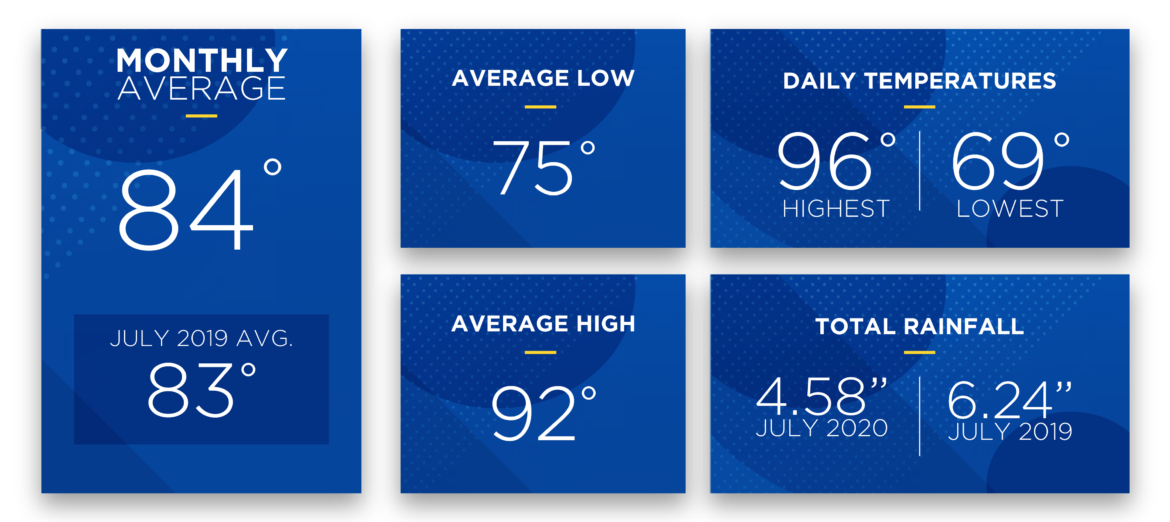Sunshine State Stats July 2020
July was a scorcher! Twenty-six out of thirty-one days reached a high of 90 degrees or above. The average low temperature for July 2020 was 75 degrees with an average low of 69. The average high temperature was 92 degrees with a daily high of 96. The average temperature was 1 degree warmer this year than in July of 2019 at 84 degrees.

July precipitation was below normal at 4.58 inches for the month compared to last year’s monthly total of 6.24 inches. Hurricane season is well under way. Thankfully, Hurricane Isaias was nothing more than a rain event for most of SECO Energy’s service territory.
On average, July is the warmest month in the Northern Hemisphere. It is often referred to as the dog days of summer. Seven states on the east coast broke records for high daily temperatures. According to NOAA, in the 126 years of collected weather data, Florida’s July temperatures ranked fourth hottest since 1895.
August 2020 forecast:
Hurricanes and heat continue to be front and center for the month of August. The average temperature forecast for August is 83.8 degrees with highs reaching in the 90s on a regular basis and lows in the 70s. As the heat continues to run its summer course, it is a good idea to check the weatherstripping around your exterior doors. Any daylight that can be seen between the door and the door casing is heat entering you home. A ¼ inch gap around your door is equivalent to a basketball size hole in the wall.
To view historical usage, log into SmartHub for past bills and consumption charts. If your usage is high, SECO offers several energy-efficiency tools to help you identify energy wasters. Take the Home Energy Assessment to receive a detailed email tailored to your home’s features and lifestyle. The energy-saving advice will provide low-cost ways to decrease your usage – and your electric bill.
To easily calculate how much energy your appliances, lighting, electronic devices, and other energy-using items consume, check out our Energy Estimator.






